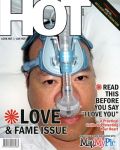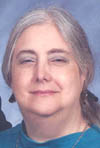Post
by raylo » Wed May 06, 2009 9:47 am
There is a part of me that agrees with Rooster, but the bigger part thinks that someone needs to do something to help all those who don't know one of us.
The volume of useful help people don't receive in terms of education and support from the time they are scheduled for a sleep study is crazy. Since becoming a hosehead, I have found out about several acquaintances who have machines sitting in a corner. At least one had no idea that they could get different masks. If not for the fact that I am a bit nutty about researching this stuff I might be one of them. My DME experience was OK compared to some horror stories, but still it was frustrating.
Does this routine sound familiar? It seems to be the routine for a whole bunch of people.
-Somehow have someone figure out sleep study is needed.
-Sleep study appt made.
-go to sleep study, have odd night, maybe get some indication you made need machine (like split night)
-next contact comes from someone telling you to contact DME
-DME tells you what you are getting
-pick up machine, told how to turn on and off, "don't touch anything else, put mask on for few minutes.
-appointment made for follow up in three-six weeks
-you are on your own, is it working?, can I get to sleep?, am I a lucky one who feels difference and stays on it?
-your card is downloaded for compliance
-you have never seen your prescription
-you may or may not have had any meaningful contact with sleep doctor
-you have no say in your own therapy
you don't know if the settings are correct?
This describes aperson who works in my office, and it also describes the parent of a nurse in my GP's office. How many others?
There are some contact points that health professionals should have with SA patients that would seem natural:
1. Perhaps an evaluation before study wioth entire process explained.
2. More education at sleep center. Perhaps an overview of the night and next steps before leaving. If titration was done, maybe an appointment should be set for very soon afterward to see DR. about treatment plan and prescription (before script is written).
3. Educational opportunities should be given before patient and DR. talk about script: a seminar, or home study materials given (along with cpaptalk.com address), at bare minimum something that explains treatment, typical problems, options for machines, and masks (along with relative costs). How many other kinds of DRs write scripts for patients they have never seen or discussed treatment options with?
4. There should be follow up within a week for comfort and usage, with help that can be offered. Tips and tricks info should be in patient hands (along with cpaptalk.com address).
My sleep doctor is the doc for his three (or more) sleep centers, one of which has at least eight rooms that are full every night. He is probably gaining patients by the thousands per year (and he runs a DME service sort of under the same umbrella). Perhaps we need more sleep doctors. Perhaps we need it to be less assembly line. How can we influence that happening?
It is probably going to be overwhelming as diagnosis increases. We'll probably have to jump through more compliance hoops as insurance companies pay for more and more unused machines. Eek.
There certainly would be a cost to more in depth patient contact at these points, but could it be offset with dollars saved on unused equipment and health problems due to untreated SA?
Sorry for making this a bit of a rant, but the process is crazy. Thank goodness I found out about this sight and was able to better understand and control what was happening (although I ended up with straight cpap and believe that apap would have been my first choice - oh well, I'll be buying an out of pocket backup soon).

















